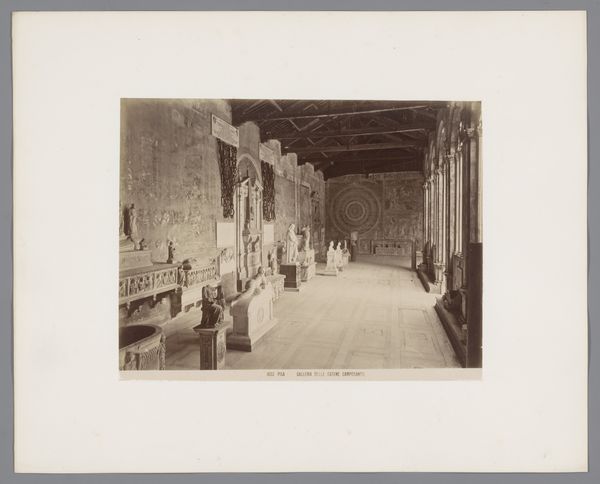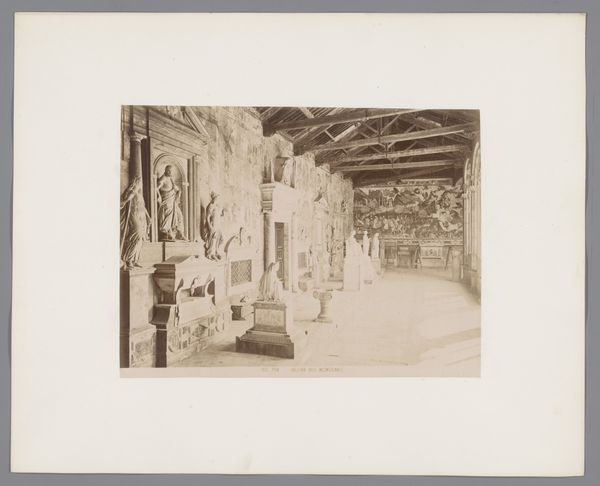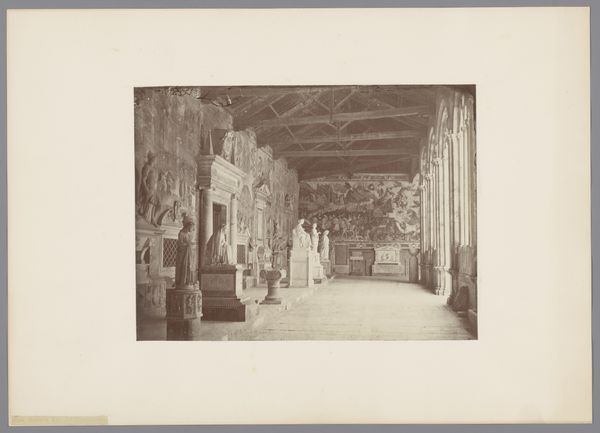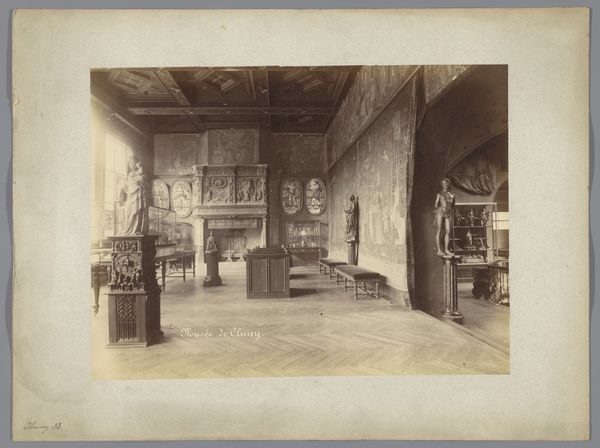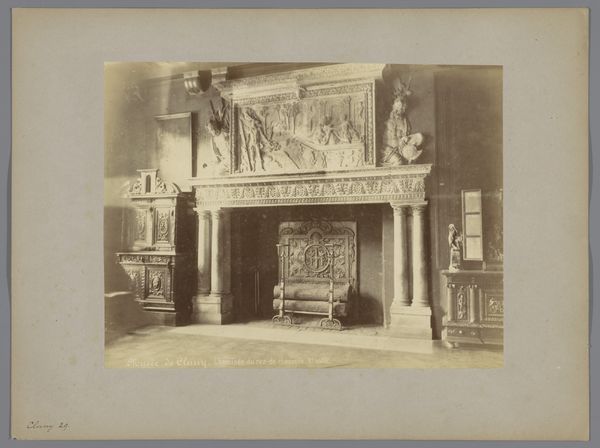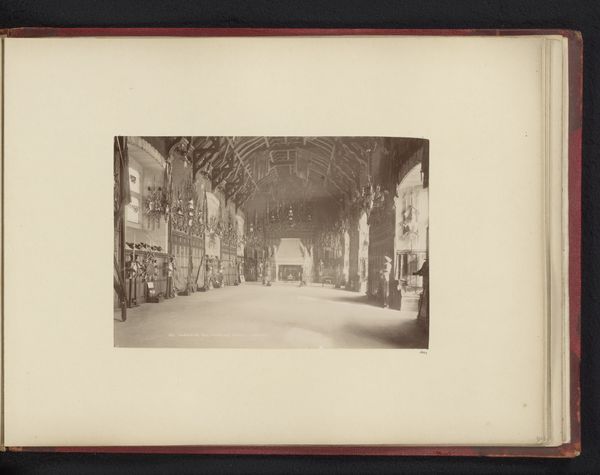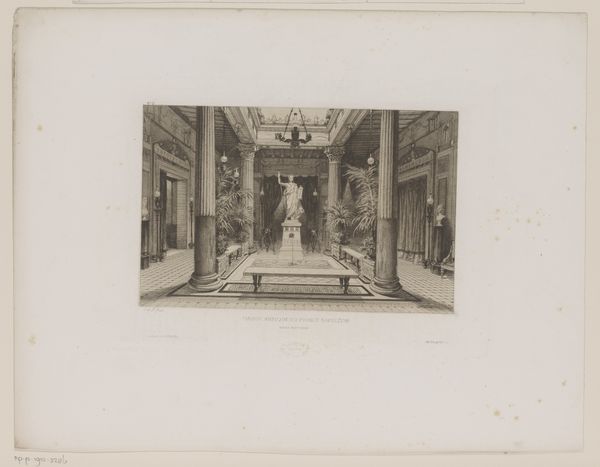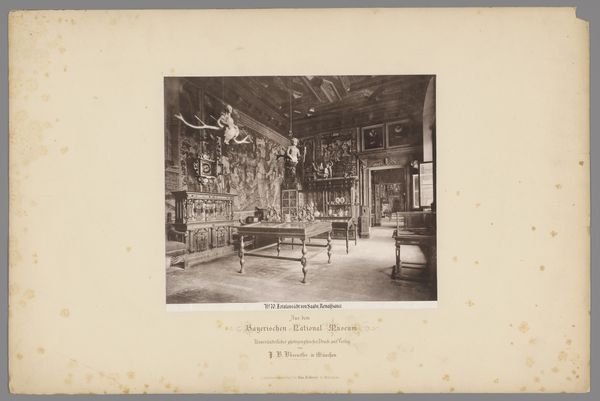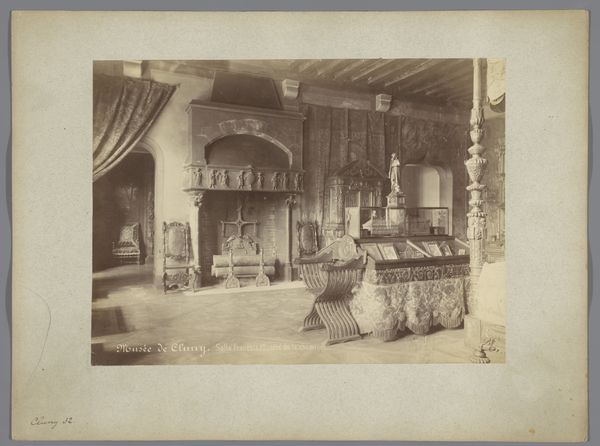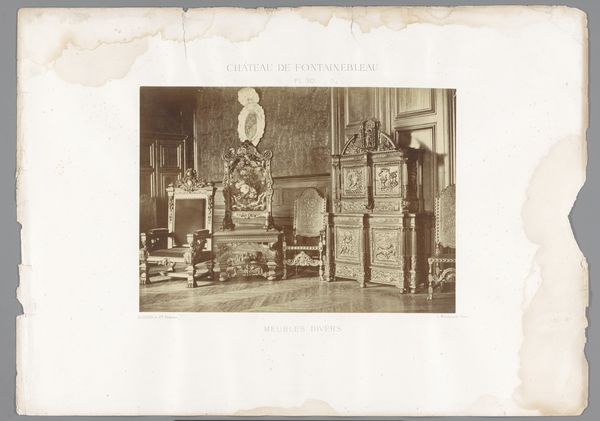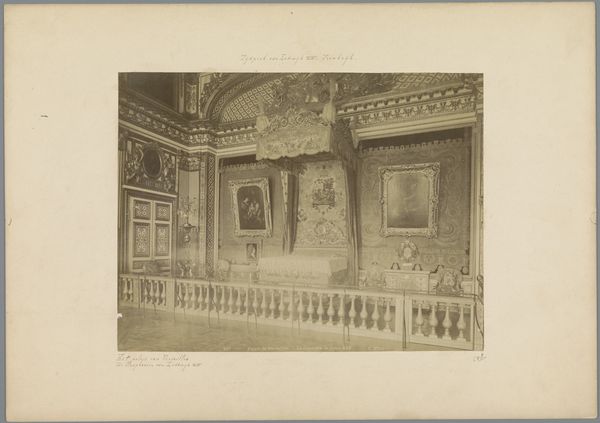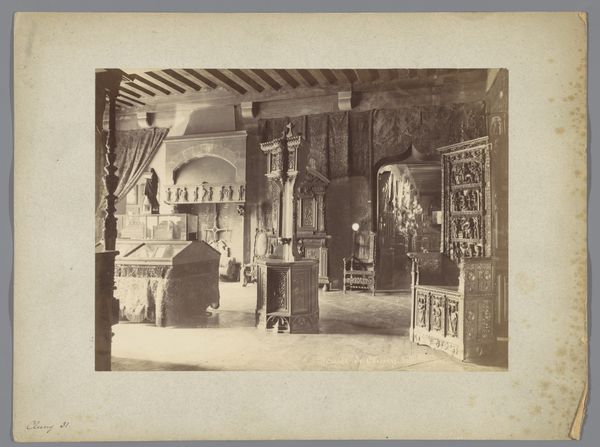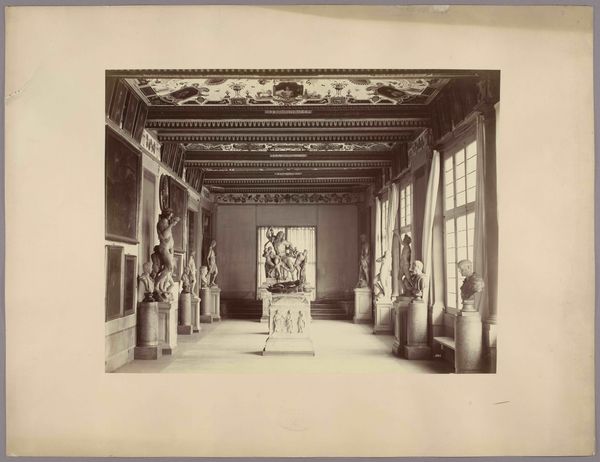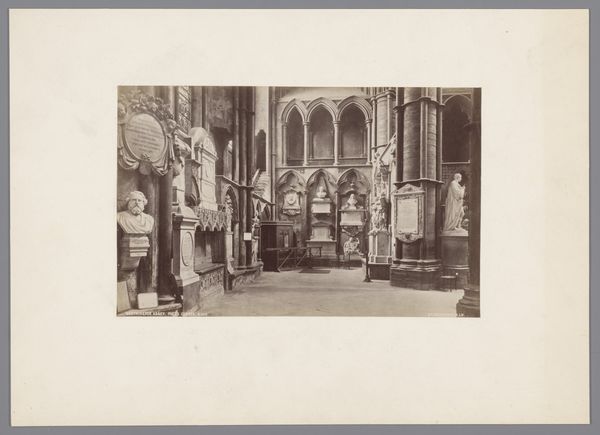
Interieur van de oostelijke galerij van het Camposanto te Pisa, Italië 1865 - 1900
0:00
0:00
photography, gelatin-silver-print
#
landscape
#
photography
#
ancient-mediterranean
#
gelatin-silver-print
#
italian-renaissance
Dimensions: height 295 mm, width 352 mm
Copyright: Rijks Museum: Open Domain
Giacomo Brogi made this photograph of the interior of the Camposanto in Pisa, Italy, using the albumen silver print method, at an unknown date. The Camposanto, or “holy field,” is a monumental cemetery, a unique institution that blends religious, civic, and artistic functions. Brogi's image captures the solemn atmosphere, with its walls adorned with frescoes and sculptures. It invites us to consider the relationship between art, death, and public memory in 19th-century Italy. Brogi's photograph, made not long after the advent of photography, is not just a recording of the space. It is a commentary on the role of art in preserving cultural heritage. At the time, Italy was in the process of national unification, and photography played a key role in documenting and celebrating the nation’s artistic patrimony. To fully understand Brogi's work, we might turn to period guidebooks, art historical scholarship, and studies of Italian cultural and political history. In so doing, we can begin to grasp the complex social and institutional forces that shaped both the Camposanto and its representation in photographs like this one.
Comments
No comments
Be the first to comment and join the conversation on the ultimate creative platform.
